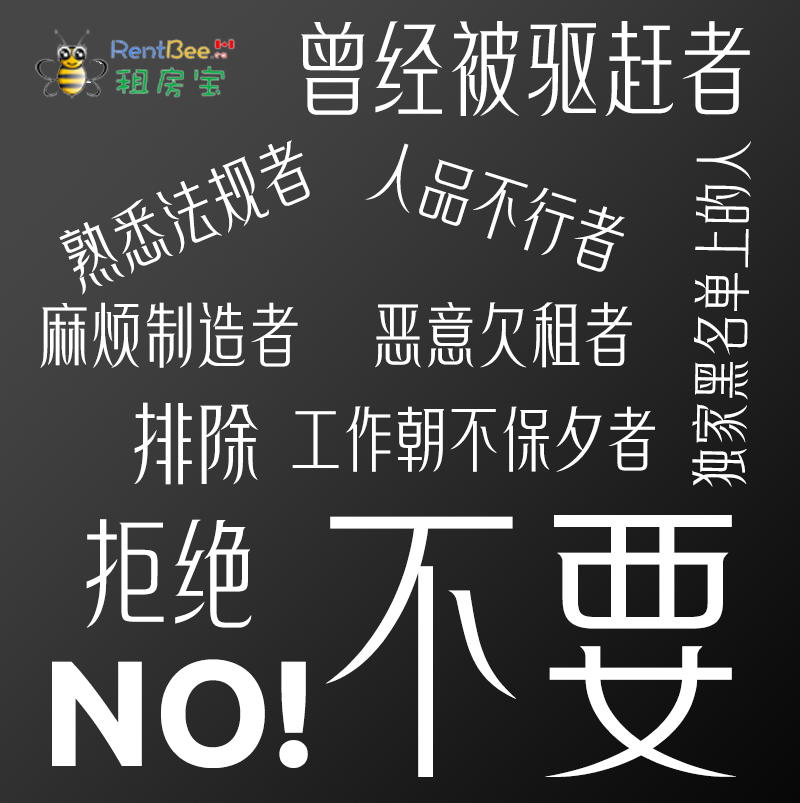China Cashes in on the Cannabis Boom
By Steven Lee Myers,The New York Times, May 4, 2019
作者:斯蒂芬-李-梅尔斯(纽约时报),发布于2019年5月4日
Cannabis growing in Yunnan Province in China in 2004. Yunnan is now licensing companies to cultivate the plant to produce cannabidiol.CreditCredit
2004年,中国云南省种植的大麻。目前,云南正在向生产大麻二酚的公司发放许可证。
SHANCHONG, China — China has made your iPhone, your Nikes and, chances are, the lights on your Christmas tree. Now, it wants to grow your cannabis.
中国山冲——你的iPhone、你的耐克(Nike)是中国造的,很有可能你圣诞树上的灯饰也是。如今,中国想给你种大麻。
Two of China’s 34 regions are quietly leading a boom in cultivating cannabis to produce cannabidiol, or CBD, the nonintoxicating compound that has become a consumer health and beauty craze in the United States and beyond.
在中国的34个省级行政区中,有两个省正悄悄引领种植大麻的热潮,用来制造大麻二酚(CBD)。在美国及其他地区,这种非致幻性化合物已掀起一股健康与美容消费热潮。
They are doing so even though cannabidiol has not been authorized for consumption in China, a country with some of the strictest drug-enforcement policies in the world.
尽管在中国这个有着世界上某些最严格毒品管制政策的国家,大麻二酚尚未获得用于消费的许可,它们仍在这么做。
“It has huge potential,” said Tan Xin, the chairman of Hanma Investment Group, which in 2017 became the first company to receive permission to extract cannabidiol here in southern China. The chemical is marketed abroad — in oils, sprays and balms as treatment for insomnia, acne and even diseases like diabetes and multiple sclerosis. (The science, so far, is not conclusive.)
“市场潜力难以估量,”汉麻投资集团董事长谭昕说。2017年,该公司成为了首家获准在这个位于中国南方的地点提取大麻二酚的公司。这种化学物质在海外销售,做成油、喷剂和香膏,用于治疗失眠、痤疮,甚至糖尿病和多样硬化症等疾病。(迄今尚无科学定论。)
The movement to legalize the mind-altering kind of cannabis has virtually no chance of emerging in China. But the easing of the plant’s stigma in North America has generated global demand for medicinal products — especially for cannabidiol — that companies in China are rushing to fill.
大麻可以改变精神状态,其合法化运动在中国几乎没有出现的可能。但随着这种植物在北美摆脱恶名,全球医疗产品的需求随之而来——特别是对大麻二酚的需求——而中国企业正争先恐后地予以填补。
Hanma’s subsidiary in Shanchong, a village in a remote valley west of Kunming, the capital of Yunnan Province, cultivates more than 1,600 acres of hemp, the variety of cannabis that is also used in rope, paper and fabrics. From the crop, it extracts cannabidiol in oil and crystal form at a gleaming factory it opened two years ago, in a restricted zone next to a weapons manufacturer.
山冲是位于云南省会昆明以西一个偏僻山谷里的村子。汉麻在这里的子公司种植着超过1600公顷的汉麻(即工业大麻),它也用于制作麻绳、纸张和织物。在两年前落成的明净的工厂里,这家公司从这种作物当中提取油状和结晶状的大麻二酚。这里是一片禁区,旁边是一家军工厂。
“It is very good for people’s health,” Tian Wei, general manager of the subsidiary, Hempsoul, said during an interview at the factory, which was punctuated by test gunfire from the manufacturer next door.
“它对人的健康也是非常有好处的,”汉麻集团旗下的云南汉素生物科技有限公司总经理田伟在厂子里接受采访时说道。隔壁军工厂不时传来测试枪支的声音。
“China may have become aware of this aspect a little bit late, but there will definitely be opportunities in the future,” Mr. Tian said.
“中国可能在这方面的认知度会稍微迟一点,但是将来肯定会有机会,”田伟说。
China has, in fact, cultivated cannabis for thousands of years — for textiles, for hemp seeds and oil and even, according to some, for traditional medicine.
事实上,中国种植大麻已有数千年历史——用于获取纺织品、大麻籽和油脂,甚至据一些人说,它还用于中药。
The Divine Farmer’s Classic of Materia Medica, a text from the first or second century, attributed curative powers to cannabis, its seeds and its leaves for a variety of ailments.
据公元一世纪或二世纪的《神农本草经》的记载,大麻具有疗愈之效,其籽和叶可用于治疗多种疾病。
The company Hempsoul extracts cannabidiol from the hemp it grows on more than 1,600 acres in Yunnan Province. “It is very good for people’s health,” said the general manager, Tian Wei.CreditSteven Lee Myers/The New York Times
汉素公司在云南种植了1600多英亩的大麻,并从中提取大麻二酚。“它对健康很有好处,”总经理田伟说。
“Prolonged consumption frees the spirit light and lightens the body,” it said, according to a translation cited in an article in the journal Frontiers in Pharmacology.
据该书记载:“久服通神明轻身体”——此处采用的是《药理学前沿》(Frontiers in Pharmacology)杂志上一篇文章所引用的翻译。
The People’s Republic of China, after its founding in 1949, took a hard line on illegal drugs, and cultivating and using marijuana are strictly forbidden to this day, with traffickers facing the death penalty in extreme cases.
1949年中华人民共和国成立后,对非法药物采取了强硬政策,直到今天,种植和服用大麻都受到严格禁止,极端情况下,走私者甚至会面临死刑。
After signing the United Nations Convention on Psychotropic Substances in 1985, China went even further. It banned all cultivation of hemp — which had long been grown in Yunnan, a mountainous province that borders Myanmar, Laos and Vietnam and is among China’s poorest. Farmers produced hemp to make rope and textiles and China had banned it even though it has only trace amounts of tetrahydrocannabinol, or THC, the mind-altering compound found in marijuana.
中国在1985年签署《联合国精神药物公约》(United Nations Convention on Psychotropic Substances)后,甚至更进一步。它完全禁止了大麻的种植——多山省份云南一直有种植大麻的传统,这里与缅甸、老挝和越南接壤,是中国最贫困的地区之一。农民种植工业用途的大麻来制作麻绳和纺织品,尽管其中仅有微量化合物四氢大麻酚(THC)——也就是大麻烟当中所含可改变精神状况的物质,但中国还是将其禁止。
At a news conference in Beijing last month, Liu Yuejin, deputy director of the National Narcotics Control Commission, said the momentum toward legalization in other countries meant the Chinese authorities would ”more strictly strengthen the supervision of industrial cannabis.”
上月在北京举行的一场新闻发布会上,国家禁毒委员会副主任刘跃进表示,其他国家合法化的势头意味着中国将“更加严格加强对工业大麻的监管”。
The Hempsoul factory has dozens of closed-circuit cameras that stream videos directly to the provincial public security bureau.
汉素工厂有几十部闭路摄像头,可将视频直接传送给省公安厅。
China relented on industrial hemp only in 2010, allowing Yunnan to resume production. Hemp then was used principally for textiles, including the uniforms of the People’s Liberation Army, but soon the products expanded.
中国直到2010年才放宽了工业大麻的限制,允许云南恢复生产。它当时主要用于纺织品,包括人民解放军的制服,但产品门类很快便扩大了。
The growing industry has brought much-needed investment to Yunnan. The mild, springlike climate is exemplary for growing cannabis, and a farmer can earn the equivalent of $300 an acre for it, more than for flax or rapeseed, Mr. Tian of Hempsoul said.
这个行业的不断扩大给云南带去了迫切需要的投资。这里四季如春的温和气候非常适宜种植大麻。汉素的田伟说,农民每英亩可获得300美元的收入,比亚麻或油菜籽都高。
Hempsoul is one of four companies in Yunnan that have received licenses to process hemp for cannabidiol, putting more than 36,000 acres under cultivation. Now others are joining the rush.
汉素公司是云南四家获批生产大麻二酚的公司之一,种植面积超过3.6万英亩。现在其他人也加入了这股热潮。
In February, the province granted a license to three subsidiaries of Conba Group, a pharmaceutical company based in Zhejiang Province. A company based in the city of Qingdao, Huaren Pharmaceutical, said recently it was applying for permission to grow hemp in greenhouses, which already line the landscape around Kunming.
今年2月,云南省向浙江制药公司康恩贝集团的三家子公司颁发了许可证。青岛的华仁药业最近表示,它正在申请在大棚种植汉麻的许可。大棚现已遍布昆明周边地区。
Other regions have taken notice, too. In 2017, Heilongjiang, a province along China’s northeastern border with Russia, joined Yunnan in allowing cannabis cultivation. Jilin, the province next door, said this year that it would also move to do so.
其他地区也注意到了这一点。2017年,中国东北与俄罗斯接壤的黑龙江省加入云南的行列,允许大麻种植。邻省吉林今年表示也将采取同样的行动。
The flurry of announcements sent the companies’ stocks soaring on Chinese exchanges, prompting regulators to step in to restrict trading.
一连串的公告推动这两家公司的股票在中国交易所暴涨,促使监管机构介入限制交易。
China has cultivated cannabis for thousands of years. Yang Ming, a leading expert on hemp, said the plant’s seeds were traditionally formed into a ball and used to treat constipation.CreditSteven Lee Myers/The New York Times
中国种植大麻已有数千年的历史。著名大麻专家杨明说,这种植物的种子传统上会被制成药丸,用于治疗便秘。
While the health benefits of cannabidiol remain uncertain, the United States Food and Drug Administration last year approved the first use of it as a drug to treat two rare and severe forms of epilepsy. Other potential uses are being studied.
尽管大麻二酚对健康的益处仍不确定,但美国食品和药物管理局(Food and Drug Administration)去年批准首次将大麻二酚用作治疗两种罕见且严重的癫痫的药物。其他潜在用途正在研究中。
China permits the sale of hemp seeds and hemp oil and the use of CBD in cosmetics, but it has not yet approved cannabidiol for use in food and medicines. So, for now, the bulk of Hempsoul’s product — roughly two tons a year — is bound for markets overseas. Mr. Tian said he believed it was only a matter of time before China, too, approved the compound for ingestion.
中国允许大麻籽和大麻油的销售,允许在化妆品中使用CBD,但尚未批准将大麻二酚用于食品和药品。因此,目前汉素的大部分产品——年产量约两吨——都是销往海外市场。田伟说,他相信中国批准这种化合物的摄食只是时间问题。
Hanma’s ambitions are global. It has acquired an extraction plant in Las Vegas, which is expected to begin production soon, and it plans one in Canada. Mr. Tan, the chairman, said he hoped that China, with the world’s largest market, would follow the lead of the United States, which he called “the best-educated” market for the benefits of cannabis.
汉麻的雄心是走向世界。该公司已在拉斯维加斯收购了一家萃取厂,预计将很快投产,并计划在加拿大再建一家。董事长谭昕说,他希望拥有世界上最大市场的中国能效仿美国,他称美国是对大麻的益处“了解最多”的市场。
“It’s a new application, but one that carries forward our tradition,” he said, citing the ancient texts describing its medicinal purposes.
“用途是新的,但它承载着传统,”他说,并引用了描述大麻药用价值的古代文献。
Yang Ming, a scientist with the Yunnan Academy of Agricultural Science who is one of China’s leading experts on hemp, said the plant’s seeds were traditionally formed into a ball and used to treat constipation, but the psychotropic qualities of cannabis were not broadly known by farmers or other residents.
云南农业科学院的科学家杨明是中国顶尖的大麻专家之一。他说,传统上人们会用大麻的种子制成药丸,用来治疗便秘,但无论农民还是其他居民都普遍不了解大麻的致幻性。
As China gradually opened up following the Cultural Revolution, however, foreign visitors to Yunnan in the late 1980s and early 1990s discovered an abundance of cannabis growing wild. That, in part, turned the region into a destination for backpackers and adventurers seeking a certain kind of experience.
然而,随着中国在文化大革命后逐渐开放,上世纪80年代末和90年代初到云南旅游的外国游客发现了大量野生大麻。这在一定程度上使得背包客和冒险家来到这里寻求某种体验。
“They would go to the villagers’ cannabis fields, pick the buds and bring them back to the hotel to dry and smoke,” Dr. Yang said. “Some of them became deranged and ran around naked after smoking it.”
“他们就会去找我们老乡田里种的大麻,会去采花带回宾馆里面把它晾干了抽,”杨明说。“抽了之后他们就有的是裸奔癫狂。”
That’s when the authorities intervened. Dr. Yang, originally from Yunnan, was a recent graduate of the agricultural university in Beijing at the time. He was assigned to study cannabis, and he has been doing so ever since. His avatar on social media is a cannabis leaf.
从那时起,当局进行了干预。杨明在云南长大,当时刚从北京的农业大学毕业。他被指派研究大麻,自此一直研究这种植物。他在社交媒体上的头像是一片大麻叶子。
The academy has been breeding its own varieties of hemp — each of which requires approval from the police — to ensure the plant contains less than 0.3 percent of THC, the international standard for cannabis. There are nine varieties now, and Dr. Yang’s team continues to research more.
云南农科院一直在培育自己的大麻品种——每一种都需要得到警方的批准——以确保植株的THC含量不到0.3%,THC是衡量大麻的国际标准。现在已经培育出九个品种,杨明的团队还在进行更多研究。
One of the varieties, Yunnan Hemp No. 7, allows the extraction of greater amounts of cannabidiol. While the compound’s use in commercial products remains in its infancy, Dr. Yang has watched the stigma of its association with marijuana begin to evaporate.
其中一个名叫云麻7号的品种可以提取更多的大麻二酚。虽然这种化合物在商业产品中的使用仍处于起步阶段,但杨明已经注意到,它与大麻相关的污名开始消失。
“Other countries,” he said, with pride of parenthood, “really like our CBD.”
“所以说现在国外就特别喜欢用我们云南的CBD,”他带着父亲般的自豪说。
声明:该文观点仅代表作者本人,加国头条 属于信息发布平台,加国头条 仅提供信息存储空间服务。











0 Comments
Leave A Reply